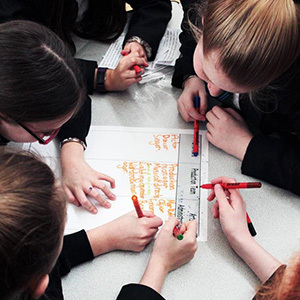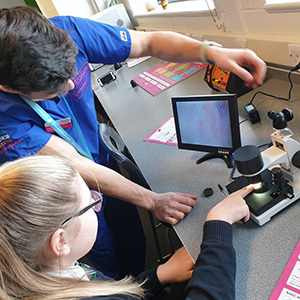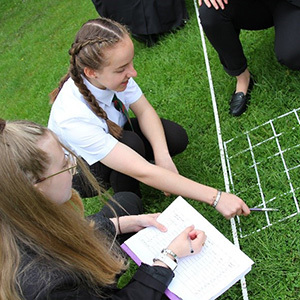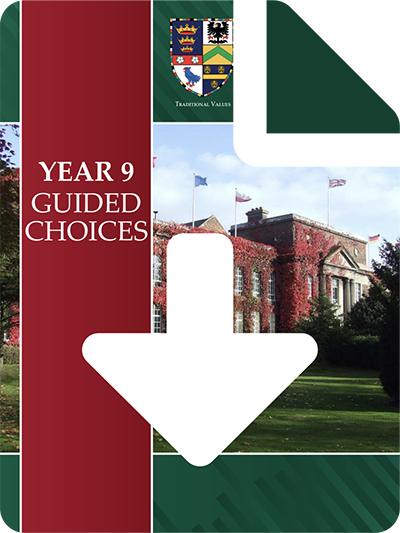- Information
School
Pupils & Parents
Statutory
- Curriculum
Curriculum
Subjects
- Transition
Year 6 Transition

- Publications
Letters
Documents & letters sent home to parents and carers
Weekly Newsletters
Our weekly parent & carer newsletter
The Voice
Malet Lambert's half-termly news round-up
Prospectus
Considering joining Malet Lambert?
Curriculum
Intent Implementation Impact
Where every pupil matters, every pupil can succeed.
At Malet Lambert, we understand the importance of nurturing and inspiring the contemporary aspirations of our pupils, guiding them towards a future filled with possibilities and success. All pupils have access to a curriculum that develops powerful knowledge and skills, all in order to lead successful lives and make a positive contribution to their communities. Our curriculum is designed to empower pupils with a strong foundation in core subjects, fostering a lifelong love for learning. Through a diverse range of subjects in both Key Stage 3 and Key Stage 4, we encourage creative curiosity and critical thinking, nurturing well-rounded individuals ready for the challenges of the modern world.
Our purpose is to maximise pupils’…
Achievement
Knowledge
Aspirations
Curriculum Vision
Our curriculum vision aims to reflect Malet Lambert’s values and ethos:
Traditional Values
Pupils are catered for with knowledge which inspires, nurtures and is embedded throughout their time within our broad, balanced and ambitious curriculum.
Contemporary Aspirations
Pupils build the skills, knowledge and personal character they need to thrive in an ever-changing, modern society.
Creative Curiosity
Pupils have the breadth and depth of knowledge to explore and probe inquisitively within, and outside of the curriculum.
Curriculum Intent
We have developed and constructed an ambitious curriculum for all pupils regardless of their background. End-points and starting points have been clearly defined and are appropriate, providing a map through each subject for all year groups and key stages. Our curriculum is sequenced using evidence-based research on how pupils learn and how to retrieve key knowledge to aid their long-term memory.
All pupils have access to our curriculum that develops knowledge and skills in order to lead successful lives and make a positive contribution to their communities. We deliver a curriculum that has at its heart the intention to support pupils to be the best they can possibly be by removing barriers and ensuring social justice. We deliver a balanced curriculum that places equal importance on every aspect of a child’s
education, ensuring the development of key qualities including PSHE, CEIAG and Employability to support future learning and employment.

Curriculum Implementation and Impact
We have considered the knowledge, skills and attitudes that are required to achieve academic excellence in each subject at A Level and beyond. This ensures that pupils in each phase receive a coherent and intelligently sequenced curriculum, which builds on what has come before. The curriculum is grounded in the strongest available evidence about how pupils learn and retain knowledge in the long term.
Subject teachers have a good knowledge of their subject areas and expertise. Where staff are teaching outside of their main subject of expertise, there is training, leadership and support in place. Each subject has developed a long-term map that clearly lays out the curriculum across the relevant key stages, so that the knowledge pupils are expected to acquire each academic year is made explicit.
This knowledge should build cumulatively in terms of its breadth and depth. Subject teams identify concepts that are central to the mastery of each subject and they maintain an unrelenting focus on helping pupils to learn this knowledge. Continuous Professional Development, specifically teacher development meetings (fortnightly subject, planning and development sessions), maintains a focus on improving and evolving the curriculum.
Evidence-based and relevant CPD is delivered to support the design and implementation of the curriculum at both whole-school and subject-specific level. Our curriculum is inclusive, broad, balanced and will never narrow the entitlement to knowledge especially for our most vulnerable pupils.
We provide a relevant curriculum that enables pupils to make informed choices about their next steps in education, employment or training.
Assessment in subjects are meaningful and driven by the curriculum to sustain good outcomes for all of our pupils. Regular retrieval practice and spaced practice should be built into the curriculum to help pupils form durable long-term memories. Sequencing of curriculum, interleaving and metacognition is also used to support pupils with building key knowledge for long term memory.
A rigorous approach is undertaken with literacy, numeracy and reading, therefore early and coordinating intervention can occur.
Feedback to pupils is meaningful, motivating and linked to the delivery of the curriculum and designated end points appropriate to age and experiences as well as being manageable for staff. Reviews take place regularly to ensure relevance and coherence of the curriculum is in line with the designated Trust and school priorities. Where appropriate, strategies are in place (e.g. check lists) that support pupils in self-regulating their learning of the curriculum.
Homework is planned into the curriculum and consistently applied across teams. It provides pupils with the opportunity to practise, embed, extend upon or apply the knowledge that they have been taught in
lessons, or provide the opportunity to improve a piece of work.
Pupils are ready for the next stage of their education, employment or training. They have the relevant qualifications and skills to be able to access their desired destination that is ambitious. Therefore, there are very few NEETS.
Please explore our subject pages and curriculum documents below to find out more.




Subjects
Visit individual subject pages for insights into facilities, Key Stage 4 courses and the extracurricular opportunities they offer.
As passionate creatives the Malet Lambert Art, Craft & Design department encourages pupils to be free-thinking creatives using a wide range of materials
Business Studies
The Business Studies department at Malet Lambert provides a single option choice in Year 10/11. Our department brings together a wealth of experience
Computing
The ICT department at Malet Lambert provides discrete ICT to all years in the school through compulsory ICT lessons at KS3 & KS4.
Creative iMedia
The Media department at Malet Lambert provides an option choice in Year 10/11. Our department brings together a wealth of experience with most
Design & Technology
The Design & Technology department is located in the main building of the school, with 6 subject classrooms. We offer a range of
Drama
The Drama curriculum at Malet Lambert provides students with the opportunity to unlock their creative skills and develop the confidence needed to achieve
English
English at Malet Lambert explores a series of texts that spark engagement and academically challenge pupils. Pupils are able to enrich their communication
Geography
The Geography curriculum at Malet Lambert aims to inspire our pupils to better understand their place in the world, and to investigate the
History
The History curriculum at Malet Lambert inspires pupils to be curious about the world in which we live. Through historical enquiries, pupils are
Mathematics
Mathematics at Malet Lambert allows pupils to expand their Mathematical intelligence by developing their mental mathematics and ability to problem solve. They will
MFL
The MFL department strongly believes that MFL has a key place in the curriculum at all key stages. At Malet Lambert we create
Music
Studying music provides pupils with a vital opportunity to stimulate and explore their creative, emotional and expressive development. The purpose of music is
Physical Education
The school offers a diverse and challenging Physical Education curriculum which includes team games and a variety of individual sporting activities. Team games
PSHE & RSE
Personal, Social, Health & Economic Education (PSHE) allows pupils to develop the knowledge, understanding and skills they need to manage their lives. As
Religious Studies
The Religious Studies department aims to encourage a deep understanding of other faiths and cultures, and to enable pupils to further develop and
Science
The Science department is made up of staff who are specialists in each of the three disciplines; biology, chemistry and physics. We aim
Sociology
This course aims to broaden pupil minds, helping them to see the world from different perspectives in new and thought provoking ways. GCSE
Curriculum Publications
At Malet Lambert we provide pupils with a comprehensive and balanced selection of subjects, fostering both subject-specific knowledge and essential learning skills. Our curriculum encourages independent learning, critical thinking, creativity, and resilience through diverse subject matter. Our learners develop the competencies needed to meet the forthcoming GCSE curriculum requirements, preparing them for future success. In addition, we address personal and social issues relevant to young adults in today’s society.
We believe in keeping our pupils’ parents and carers well-informed about their child’s education. To ensure transparency, we regularly publish summaries of each subject’s content for every year group.
What will my child learn this term?
Here we provide a summaries of learning for the 2026 Spring Term in each subject. For Key Stage 4 this includes both core and option subjects.
Curriculum Guides
Our Curriculum Guides provide an overview of what every pupil at Malet Lambert will study in every subject.
If you have any queries regarding our curriculum, please get in touch with Mr Paul Fortune, Deputy Head (Curriculum).
Guided Choices
In Years 10 and 11 (Key Stage 4) pupils complete a broad curriculum, having chosen from a number of pathways. Each pathway includes core subjects and option choices to cover the English Baccalaureate and a wide variety of qualifications suited to their individual needs.
Pupils make their choices of subjects in the Spring Term of Year 9.

